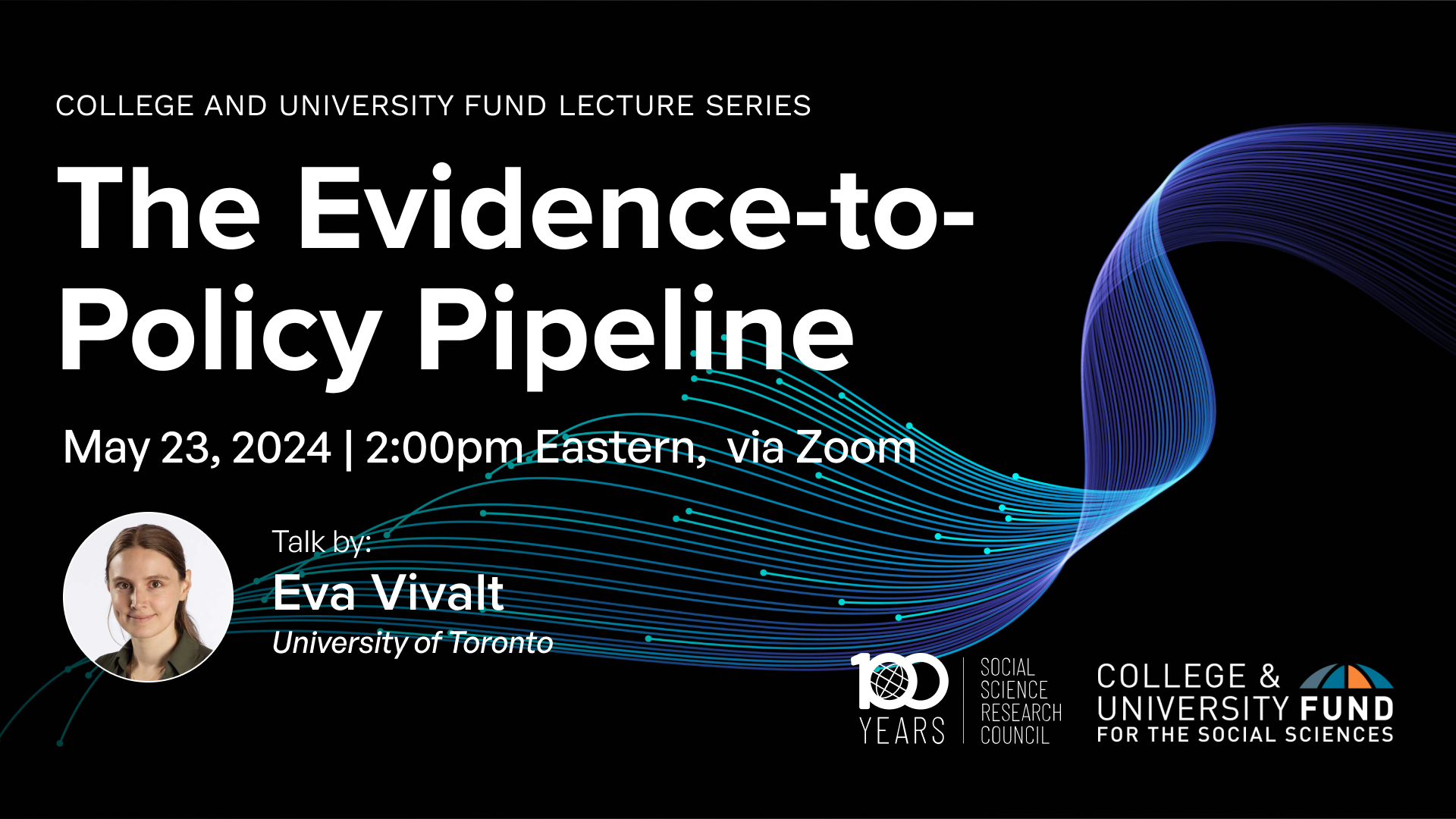
The Evidence-to-Policy Pipeline
FOS Affiliate Eva Vivalt on how policymakers, practitioners, and researchers respond to and weigh evidence, revealing a preference for positive outcomes, context sensitivity, and local relevance.
Recent years have seen a large increase in the availability of rigorous impact evaluations that could inform policy decisions. However, it is not enough for evidence to exist: it must also be seen as relevant and correctly interpreted.
In conversation with Anna Harvey, SSRC President, Eva Vivalt introduced new research with Aidan Coville and Sampada KC drawing on experiments conducted with policymakers, practitioners, and researchers at the World Bank and the Inter-American Development Bank workshops. In this talk, Vivalt explored how each of these three groups respond to and weigh evidence when it is presented to them, and which types of evidence policymakers tend to weigh more heavily. They find greater weight placed on good news than bad, insensitivity to confidence intervals, and that policymakers were extremely sensitive to context and whether the evidence or recommendation was produced locally.
The talk was part of the Social Science Research Council’s College and University Fund for the Social Sciences lecture series. Vivalt discussed what researchers can do to make it more likely that their findings are used.
View the event’s recording below: